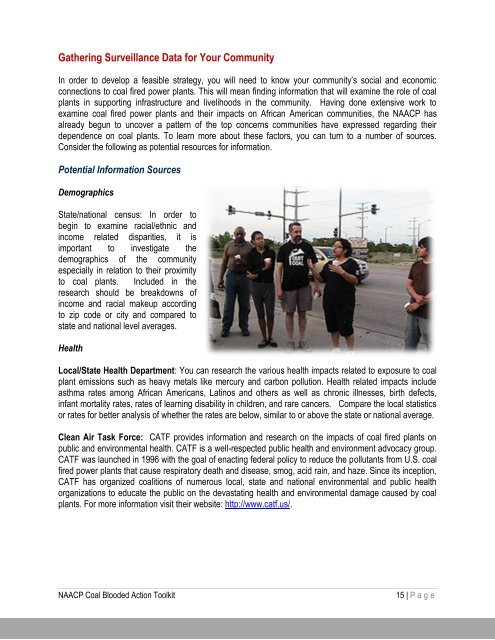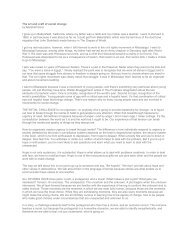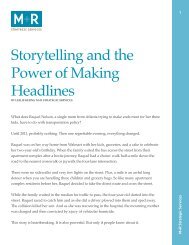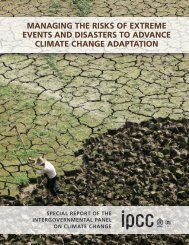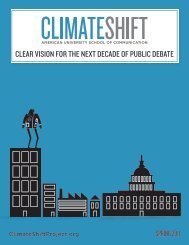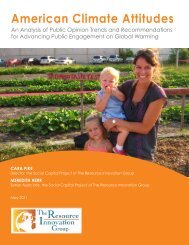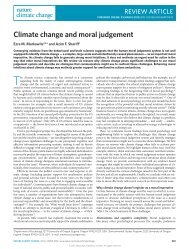Coal Blooded Action Toolkit - Climate Access
Coal Blooded Action Toolkit - Climate Access
Coal Blooded Action Toolkit - Climate Access
- No tags were found...
Create successful ePaper yourself
Turn your PDF publications into a flip-book with our unique Google optimized e-Paper software.
Gathering Surveillance Data for Your CommunityIn order to develop a feasible strategy, you will need to know your community’s social and economicconnections to coal fired power plants. This will mean finding information that will examine the role of coalplants in supporting infrastructure and livelihoods in the community. Having done extensive work toexamine coal fired power plants and their impacts on African American communities, the NAACP hasalready begun to uncover a pattern of the top concerns communities have expressed regarding theirdependence on coal plants. To learn more about these factors, you can turn to a number of sources.Consider the following as potential resources for information.Potential Information SourcesDemographicsState/national census: In order tobegin to examine racial/ethnic andincome related disparities, it isimportant to investigate thedemographics of the communityespecially in relation to their proximityto coal plants. Included in theresearch should be breakdowns ofincome and racial makeup accordingto zip code or city and compared tostate and national level averages.HealthLocal/State Health Department: You can research the various health impacts related to exposure to coalplant emissions such as heavy metals like mercury and carbon pollution. Health related impacts includeasthma rates among African Americans, Latinos and others as well as chronic illnesses, birth defects,infant mortality rates, rates of learning disability in children, and rare cancers. Compare the local statisticsor rates for better analysis of whether the rates are below, similar to or above the state or national average.Clean Air Task Force: CATF provides information and research on the impacts of coal fired plants onpublic and environmental health. CATF is a well-respected public health and environment advocacy group.CATF was launched in 1996 with the goal of enacting federal policy to reduce the pollutants from U.S. coalfired power plants that cause respiratory death and disease, smog, acid rain, and haze. Since its inception,CATF has organized coalitions of numerous local, state and national environmental and public healthorganizations to educate the public on the devastating health and environmental damage caused by coalplants. For more information visit their website: http://www.catf.us/.NAACP <strong>Coal</strong> <strong>Blooded</strong> <strong>Action</strong> <strong>Toolkit</strong>15 | P a g e


